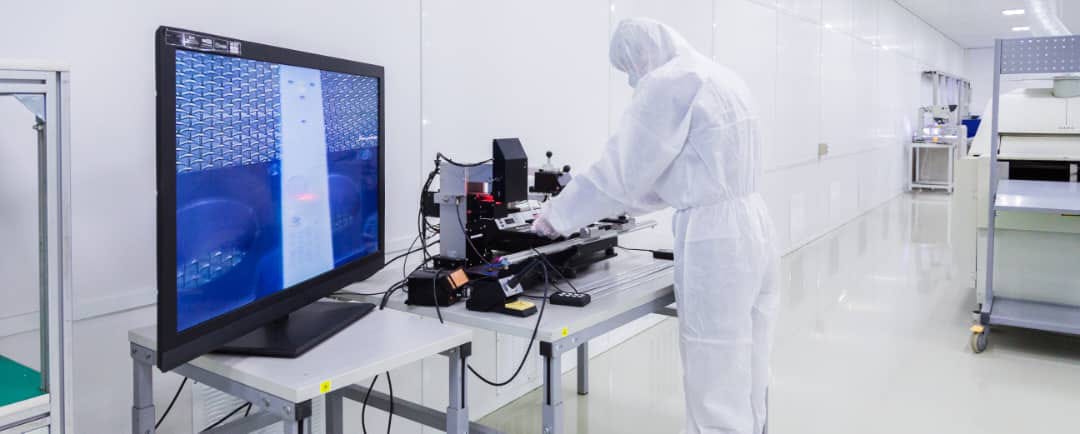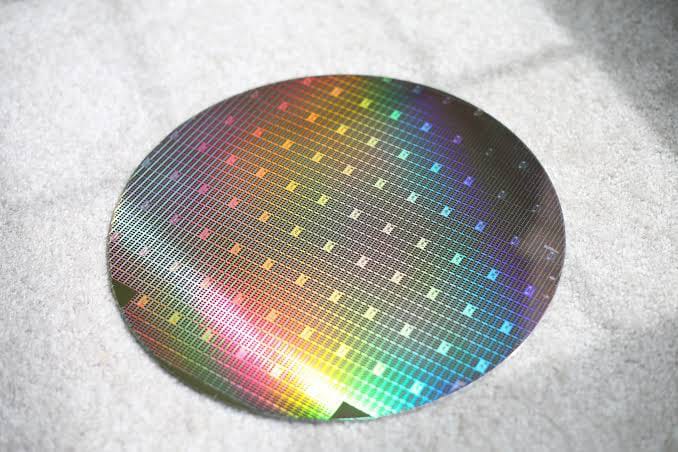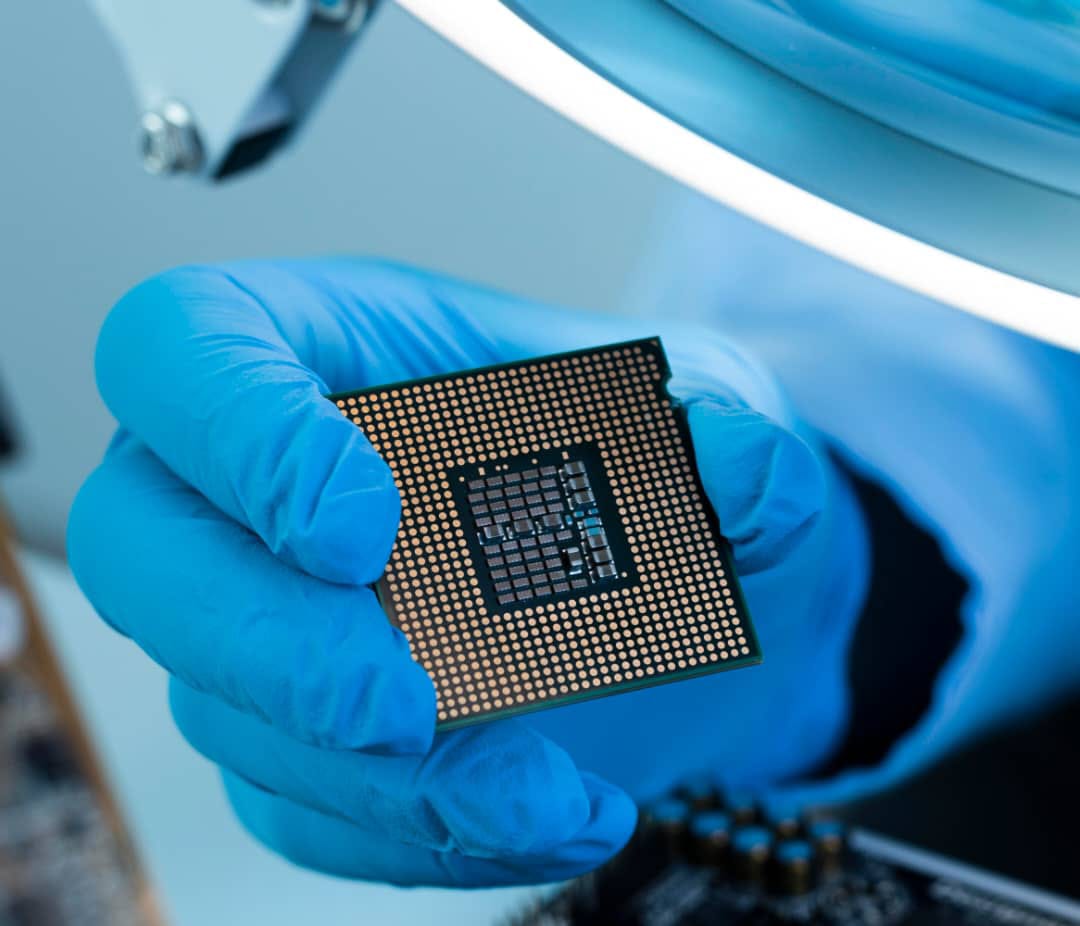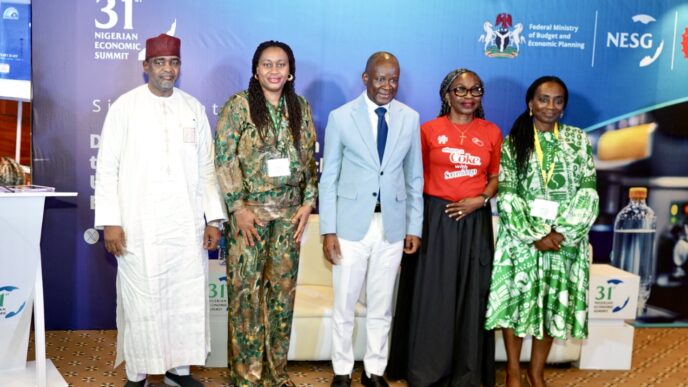In today’s technology-driven world, semiconductors are the invisible engines powering everything from smartphones and data centers to electric vehicles and renewable energy systems. As the global demand for these microchips skyrockets—expected to reach over $1.2 trillion by 2030—a fierce race is underway among nations to dominate the semiconductor industry, which is a race that Nigeria is now strategically entering.
Nigeria’s emergence as a semiconductor hub is not just a possibility; it’s crucial. The continent’s growing digital economy, expanding tech ecosystem, and youthful population demand homegrown solutions that reduce dependency on foreign imports and supply chains vulnerable to geopolitical disruptions. Africa’s digital economy is projected to reach $712 billion by 2050 with Nigeria as the largest contributor. Nigeria’s GDP is estimated at $243 billion in 2024, supported by a population exceeding 220 million, with over 60% under the age of 25. By establishing Nigeria as a centre for semiconductor innovation and manufacturing, we can fulfill a continental need and position Africa as a serious player in the global chip economy. We believe Nigeria has the potential to become Africa’s semiconductor hub, placing the country and the continent to compete with global tech powers. This is not just about manufacturing chips; it’s about building a sustainable ecosystem that drives innovation, economic growth, and technological sovereignty across Africa.
Why is this important? Currently, the semiconductor industry is concentrated in a few countries, leaving Africa heavily reliant on imports. Taiwan, South Korea, and the United States account for over 70% of global semiconductor manufacturing capacity. This dependency exposes the continent to supply chain disruptions and inflated costs, limiting access to critical technology. Nigeria, with its vast market, growing tech ecosystem, and young, talented workforce, is uniquely positioned to change this narrative.
Our vision is bold: to develop indigenous semiconductor capabilities that meet local and Africa’s needs while competing on the global stage. We have established at Amal Semiconductor Manufacturing Company Limited, a fabless ecosystem along with our partners; we are pioneering the first assembly, testing and packaging (ATP) of various chips (QFN, QFP, CSP and many more types in the works). We are investing in research and development, talent cultivation, and strategic partnerships to build the first foundry in Africa that will be tailored for Africa’s unique challenges—such as energy efficiency, affordability, and durability in diverse environments.
Establishing Nigeria as a semiconductor hub requires more than technology; it demands collaboration among government, industry, academia, and investors. We are actively engaging policymakers to create an enabling environment that supports innovation, attracts investment, and encourages local manufacturing. At the same time, we are partnering with universities and technical institutions to nurture the next generation of engineers and designers who will drive this industry forward.
The benefits of a thriving semiconductor sector are transformative. Beyond technology, it will diversify Nigeria’s economy, create high-value jobs, strengthen supply chains, and boost exports. More importantly, it will empower Africa to take control of its digital future, reducing dependence on external suppliers and fostering resilience in the face of global uncertainties.
This vision aligns with a broader continental need, it is not just about building a Nigerian semiconductor, it’s about transforming Africa’s largest economy. It’s about sovereign technology and making Nigeria an exporter of technology—from dependent to self-sufficient. As Africa accelerates its digital transformation, the demand for chips will grow exponentially. Nigeria’s leadership in semiconductor innovation can serve as a catalyst for regional collaboration, integrating African markets and building a robust technology ecosystem that uplifts the entire continent
Our journey reflects this ambition. From pioneering indigenous industrial equipment to advancing semiconductor research, we are committed to positioning Nigeria as a global player in the chip economy. The road ahead is challenging, but the opportunity is immense. With strategic focus, investment, and collaboration, Nigeria can claim its place among the world’s technology leaders.
The race for Silicon Africa is on. Nigeria is ready to lead.
Shehu Tijjani Abdullahi
CEO and Founder
Amal Technologies Ltd / Amal Semiconductor Manufacturing Company Ltd ASMC















